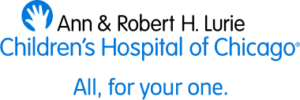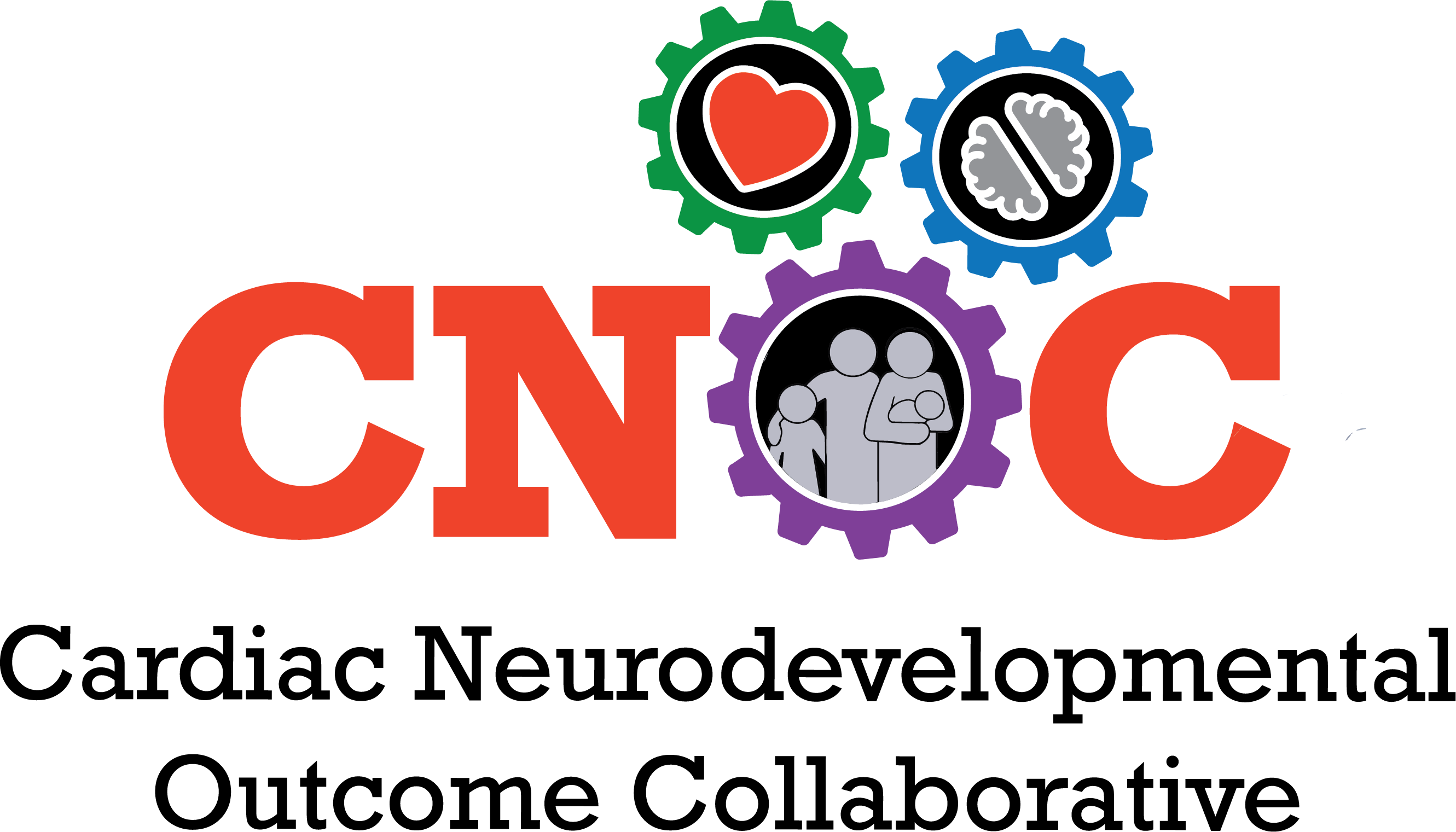Name of Program:
NICU-Cardiac Neurodevelopmental Program (NCNP)
Year Program Established:
2002- The Early Childhood Clinic (ages 5 and under)
2017- The Child & Adolescent Clinic
Program Leader(s):
- Bradley S. Marino, Co-Director
- Raye-Ann DeRegnier, Co-Director
- Kiona Y. Allen, Associate Director
- Carrie A. Alden, APRN-NP
Key Staff and Specialties:
Pediatric specialists (pediatricians, neonatologists, or pediatric cardiologists)
- Bradley S. Marino MD MBA MPP (Cardiology)
- Raye-Ann DeRegnier MD (Neonatology)
- Kiona Y. Allen MD (Cardiology)
- Amy O’Connor DO (Cardiology)
- Stephanie Voller M Baehl MD (Neonatology)
- Karen Mestan MD (Neonatology)
- Malika Shah MD (Neonatology)
- Nana Matoba MD (Neonatology)
- Nicole Pouppirt MD (Neonatology)
- Jill Chang MD (Neonatology)
- Deborah Gaebler-Spira MD (PM&R)
- Maria Dizon MD (Neonatology)
Advanced Practice Nurses
- Carrie A. Alden APN NP AC/PC (Cardiology)
- Kaitlyn Cowan APRN-NP, DNP, PNP (Developmental and Behavioral Peds)
- Elizabeth Smith APRN NP (Neonatology)
- Denise Barnes APRN NP (Neonatology)
Developmental and Behavioral Pediatrician
- Rachel K. Follmer MD
Physical Therapists
- Casey Vogel DPT
- Michael Natarus DPT
- Mary Kay Santella DPT
- Ann Marie Crean DPT
Occupational Therapists
- Robin Manus OTR/L
Speech Therapists
- Sharon Veis MA CCC-SLP
- Christina Celin MA CCC-SLP
- Michelle Schuster MS CCC-SLP
Dietician
- Linda Somers RD
Social Workers
- Sahar Shalash LCSW
- Alexandra Berg LSW
Education Liaison
- Sarah Johnson
Pediatric Psychologists
- Annelise Cunningham PhD
Pediatric Neuropsychologist
- Clayton Hinkle PhD
Neuropsychology Psychometrist
- Pooja Parikh
Registered Nurses
- Elizabeth Colla RN
- Sarah Heigel RN
Program Coordinator
- Crystal Ruiz
Age Range of Patients Served:
0 yrs – 18 yrs
Description of Inpatient Program(s):
Our NCNP multidisciplinary team is involved in both the care of inpatients in the Regenstein Cardiac Care Unit (CCU) and outpatients in our Clark/Deming site in Chicago. Inpatients are screened by clinic staff for the AHA high-risk criteria and an appointment is made in the NCNP clinic prior to hospital discharge. Caring for patients across both settings has allowed us to create a streamlined transition upon discharge while ensuring excellent care in each setting. The high proportion of complex neonates and children listed and waiting for transplant at our institution means that the length of stay can be substantial. As a result, we have a heavy focus on neurodevelopment and psychosocial support in the inpatient setting. All neonates receive physical therapy, occupational therapy, and speech and language therapy services beginning on the day of initial admission to the CCU.
All high-risk patients also receive school services and support from child life specialists and social workers. All patients on the unit are reviewed in multidisciplinary rounds weekly, incorporating all the various members of the care team to ensure that developmentally appropriate care is being provided throughout the hospital stay. For extended-stay patients, our inpatient education staff partners with our outpatient NCNP education liaison to ensure continuity of school support. Together, they help facilitate a smooth transition back to the school setting.
Our physical therapy team also partners with our inpatient cardiac rehabilitation team to ensure that patients are maintaining their functional health despite their prolonged hospitalization.
Description of Outpatient Program(s):
Research shows that high-risk NICU graduates and children with complex heart conditions are at a greater risk for neurodevelopmental issues when compared to healthy children; therefore, ongoing specialized developmental care for children in this population is important throughout childhood and adolescence. Many of these children experience one or more mild to severe deficits across a range of areas. The NICU-Cardiac Neurodevelopmental Program (NCNP) seeks to help with:
- Delays in fine and gross motor skills
- Difficulties with speech and/or language
- Feeding or nutritional problems
- School difficulties, such as problems with reading, writing and math
- Attention, behavioral and emotional problems
- Problems getting along with friends and family
- Issues with task management and organization
In addition to referrals from the inpatient setting, we screen all outpatients for eligibility to the NCNP based on the AHA high-risk criteria. Patients who qualify are automatically referred as part of normal clinic workflow. The NCNP then contacts the patient family to schedule an appointment either in-person or via telemedicine. At the first evaluation, our multidisciplinary team of experts will assess and identify patients’ developmental assets and vulnerabilities. Since some challenges may not emerge until later in childhood or adolescence, NCNP care providers will work with patients and families to perform periodic assessments at key points in the patient’s development. At each NCNP evaluation, the NCNP will partner with families to develop an appropriate plan of support.
Description of research or QI projects in cardiac neurodevelopment – undergoing or accomplished:
Because of the tremendous depth and breadth of our multidisciplinary team and our collaborations throughout the hospital, we are able to engage in research and QI work in a variety of areas.
Early Childhood:
In addition to our CNOC work, we are heavily engaged in NPC-QIC which conducts a variety of QI initiatives for infants with Hypoplastic Left Heart Syndrome. As part of that effort, we are currently screening infants with the Ages & Stages Questionnaire through NCNP clinic and integrating those results into each child’s comprehensive neurodevelopmental assessment. Our interstage single ventricle team has also partnered with our developmental therapists to run a structured enteral tube weaning program in the interstage population. Thus far, we have weaned over 20 patients post-bidirectional Glenn or definitive biventricular repair and have been collaborating with centers from around the country who are tackling the same problem. We also have an active inpatient project looking at maternal depression screening and a separate, but related, project that explores parental stress and mental health during the inpatient to outpatient transition in high risk neonates.
Child & Adolescent Clinic:
From the beginning, our Child & Adolescent Clinic was designed to utilize EPIC to generate a database directly from our clinic notes that allows us to more efficiently ask and answer research and QI questions in our population. Metrics on screening, wait time, referral patterns, and clinical information are collected. Taking advantage of the availability of this information, last year we implemented a QI initiative to improve screening and referrals of high-risk cardiac patients to NCNP clinic by tracking the percentage of eligible patients referred to clinic on an individual provider level. This allowed us to deliver improved education and resources to individual providers and both enhance their ability to properly screen and refer patients. With this effort, we improved capture to above 80%.
We have also been able to look back at our impact on patient outcomes. A recent, internal audit of our clinic data demonstrated that a new IEP or modification to an existing IEP was required for > 1/3 of patients following their initial visit to our clinic. This work often begins prior to discharge when our inpatient teachers partner with our outpatient education liaison to ensure that extended length of stay inpatients and their families have a clear plan for the safe and efficient reintegration into school.
Furthermore, we have been able to conduct some preliminary, descriptive research looking at fine and gross motor performance in older children that we hope to present at this year’s CNOC conference. We are currently working with our exercise physiologists to roll out comprehensive exercise programs for high-risk groups including patients hospitalized with ventricular assist devices or waiting for transplant in the inpatient setting and patients with single ventricle physiology or heart failure in the outpatient setting. Perhaps, most exciting, we are piloting our own physical functioning questionnaire and virtual assessment tool that enables us to assess the fine and gross motor functioning of patients despite telemedicine evaluations.
Unique features and strengths of this program:
The NCNP at Lurie Children’s has the capability to evaluate and treat children from birth to adulthood. We are fortunate that our NCNP team is able to streamline care from inpatient through outpatient settings which allows us to get a head start on family education and providing resources and therapies that may improve future outcomes. We are one of few programs that has a robust Child & Adolescent Clinic that continues the work of our Early Childhood Clinic and additionally evaluates older children for the first time who may have been missed earlier in life.
Most importantly, our education liaison serves as an advocate for our patients and their families. With this support families do not have to navigate the educational system alone. Now, this is even more crucial with COVID -19 placing additional strain on the already limited special education services.
Finally, we have committed to providing these critical services to all families, regardless of insurance carrier or ability to pay, and we are grateful to both Lurie Children’s for their institutional support and to our numerous donors for their philanthropic supp
Ann & Robert H. Lurie Children’s Hospital of Chicago

